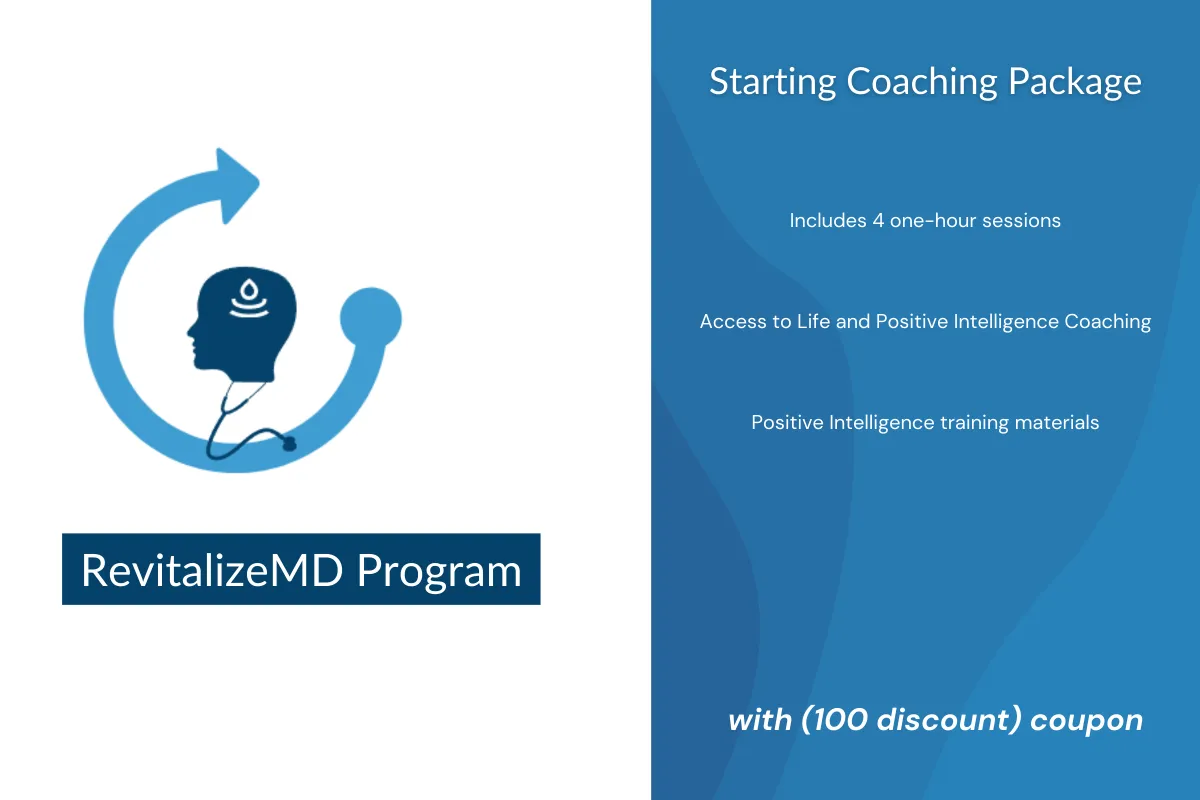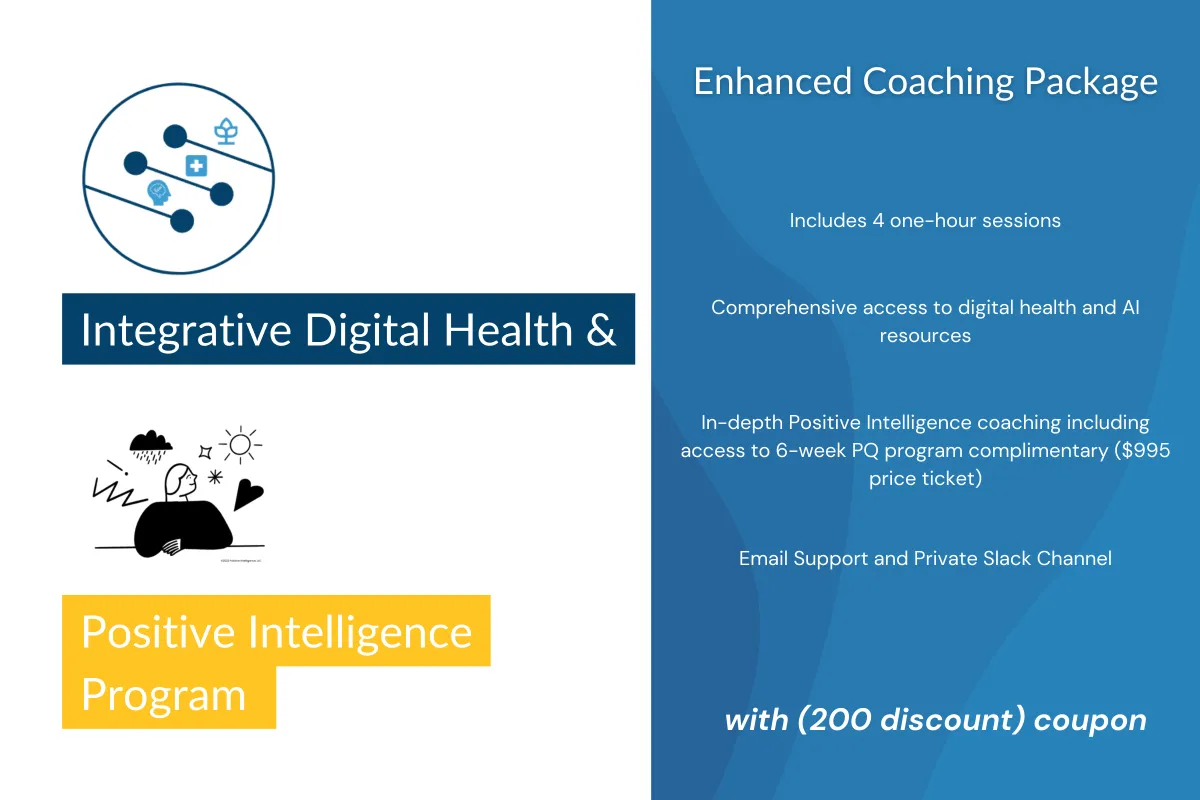
Are you ready to transform healthcare and make a lasting impact? Join the Healthcare Innovation An Introduction for Physicians Online Course!
BLOG POST

Are you ready to transform healthcare and make a lasting impact? Join the Healthcare Innovation An Introduction for Physicians Online Course!
BLOG POST
Maximizing Productivity: Tailored Insights from "The Perfect Week Formula" for Physicians and Entrepreneurs
Craig Ballantyne’s "The Perfect Week Formula" offers a roadmap to help achieve this balance by optimizing productivity and time management. ...more
Personal blogs ,Wellness Physician &Entrepreneur
July 15, 2024•6 min read

Mastering Contract Negotiation: 10 Essential Tips for Physicians
Whether you’re just starting out or looking to make a career move, understanding how to negotiate effectively can significantly impact your professional and personal life. ...more
Personal blogs ,Physician Entrepreneur &Career
July 01, 2024•6 min read

From Self-Criticism to Quantum Leaps: Harnessing Reflection for Massive Growth
From medical school to fellowship, it's easy for healthcare professionals to fall into the trap of harsh self-criticism. ...more
Personal blogs ,Wellness &Positive Intelligence
May 14, 2024•7 min read

Master Your Growth: Conquering 7 Challenges to Unleash Your Future Self
Living with purpose isn't just philosophical; it's practical and transformative. It challenges the conventional wisdom of self-centered goals and invites us to look beyond ourselves to find true fulfi... ...more
Personal blogs ,Wellness
May 14, 2024•13 min read

Unlock Your Future: How Choosing Purpose Over Design Transforms Your Life and Destiny
Living with purpose isn't just philosophical; it's practical and transformative. It challenges the conventional wisdom of self-centered goals and invites us to look beyond ourselves to find true fulfi... ...more
Personal blogs ,Wellness
May 14, 2024•8 min read

Pivoting Your Medical Career: Embracing Change for Growth and Fulfillment
In a profession as demanding and dynamic as medicine, the concept of a career pivot is not just a possibility but, at times, a necessity. ...more
Personal blogs ,Wellness
March 04, 2024•7 min read

Harmonizing Life and Career: The SPIRE Model for Physicians
The SPIRE model, encompassing spiritual, physical, intellectual, relational, and emotional dimensions, offers a comprehensive framework for physicians to thrive in all areas of life. ...more
Personal blogs ,Positive Intelligence
February 19, 2024•6 min read

Inspiring Medical Change: Physicians Leading the Way in 2024
As physicians, you've weathered another year of challenges and hopefully, growth. With 2024 on the horizon, it's time to reflect on the lessons learned and to forge ahead with a renewed sense of purpo... ...more
Personal blogs ,Wellness Positive Intelligence &Physician
February 05, 2024•8 min read

5 Mindful Hacks Every Doctor Needs to Know
Let me show you 5 transformative hacks that can significantly impact your personal and professional life. We all know that being a doctor comes with a multitude of challenges, from back-to-back appoin... ...more
Personal blogs ,Wellness &Physician
January 22, 2024•8 min read

Thriving, Not Just Surviving: Cracking the Formula for Physician Well-Being.
The pursuit of professional excellence and the demands of patient care can overshadow the importance of personal well-being and happiness. But what if we could shift the narrative from merely survivin... ...more
Personal blogs ,Wellness Physician Entrepreneur &AI
January 08, 2024•12 min read


Maximizing Productivity: Tailored Insights from "The Perfect Week Formula" for Physicians and Entrepreneurs
Craig Ballantyne’s "The Perfect Week Formula" offers a roadmap to help achieve this balance by optimizing productivity and time management. ...more
Personal blogs ,Wellness Physician &Entrepreneur
July 15, 2024•6 min read

Mastering Contract Negotiation: 10 Essential Tips for Physicians
Whether you’re just starting out or looking to make a career move, understanding how to negotiate effectively can significantly impact your professional and personal life. ...more
Personal blogs ,Physician Entrepreneur &Career
July 01, 2024•6 min read

From Self-Criticism to Quantum Leaps: Harnessing Reflection for Massive Growth
From medical school to fellowship, it's easy for healthcare professionals to fall into the trap of harsh self-criticism. ...more
Personal blogs ,Wellness &Positive Intelligence
May 14, 2024•7 min read
Many physicians considered therapy, self-help resources and support groups before finding our coaching more effective due to its personalized, goal-oriented approach.
Join our innovative life coaching programs that integrate Positive Intelligence to build mental fitness, resilience and emotional intelligence.
CHOOSE YOUR PACKAGES
$1,200

$2,000

TAKE PART IN OUR SURVEYS

Gain insights into your current MENTAL and EMOTIONAL STATE.

This survey aims to understand the current state of HAPPINESS and WELL-BEING among physicians and to gather INSIGHTS on effective strategies for fostering JOY in the medical profession.
TAKE PART IN OUR SURVEYS

Gain insights into your current MENTAL and EMOTIONAL STATE.

This survey aims to understand the current state of HAPPINESS and WELL-BEING among physicians and to gather INSIGHTS on effective strategies for fostering JOY in the medical profession.

Join our NEWSLETTER!
Stay in the loop with our latest updates, exclusive offers, and expert insights by joining our newsletter! Receive valuable content directly to your inbox and be the first to know about upcoming events and promotions. We never share your info to others. You can also opt out anytime.
Join the Movement: Subscribe for Healthcare Innovation & Career Tips!
Physician Well-being & Resilience: Strategies for managing stress and burnout. Building emotional intelligence and mental fitness.
Positive Leadership for Physicians: Developing positive communication and conflict resolution skills. Leading with empathy and emotional intelligence.
Physician Career Transition or Pivot: Setting meaningful goals and achieving work-life integration. Navigating career challenges and transitions.
CLICK TO WATCH THE VIDEO...
Join the Movement: Subscribe for Healthcare Innovation & Career Tips!
Physician Well-being & Resilience: Strategies for managing stress and burnout. Building emotional intelligence and mental fitness.
Positive Leadership for Physicians: Developing positive communication and conflict resolution skills. Leading with empathy and emotional intelligence.
Physician Career Transition or Pivot: Setting meaningful goals and achieving work-life integration. Navigating career challenges and transitions.
CLICK TO WATCH THE VIDEO...
Elevate Your
Leadership and
Gain the tools and strategies needed to become a more effective and inspiring to our fellow physicians, entrepreneurs and other sectors. Follow us on social media, sign up for our newsletter and engage with our community to stay inspired, informed, and connected on your journey of transformation.
SUBSCRIBE TO OUR NEWSLETTER
Elevate Your
Leadership and
Gain the tools and strategies needed to become a more effective and inspiring to our fellow physicians, entrepreneurs and other sectors. Follow us on social media, sign up for our newsletter and engage with our community to stay inspired, informed, and connected on your journey of transformation.
SUBSCRIBE TO OUR NEWSLETTER
Copyright @ 2024 Adoctorsjourney, LLC
All Right Reserved.

